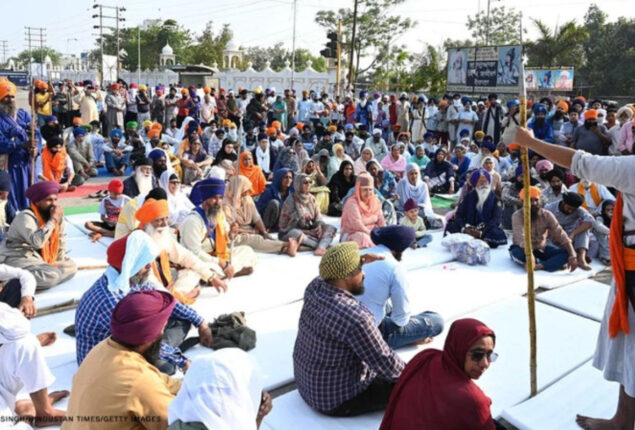Indian students expelled from Canada over forged papers
Dimple K is one of 150 Indian students who have received a...

After Punjab police hunt Sikh separatists, India cuts internet
One of the largest blackouts in recent years in India has been caused by the government’s decision to ban internet connectivity for roughly 27 million people in the state of Punjab for a third straight day as police look for a fugitive Sikh separatist.
Amritpal Singh, a well-known leader in the separatist Khalistan movement that aspires to create an independent state for Sikhs, was the target of the Punjab government’s inaugural 24-hour internet ban, which was announced on Saturday as authorities began an operation to arrest him.
According to a statute that enables the connection to be interrupted to “avoid any encouragement to violence and any disturbance of peace and public order,” the administration prolonged the internet blackout, which affects everyone in the northern Indian state, for a third time to midday on Tuesday.
The internet blackout has been explained by Punjabi police as a way to uphold the law and halt the propagation of “false news.”
Hundreds of Singh’s fans were seen going through the streets of Punjab in dramatic scenes that were captured on camera and carried on local media.
Some of the supporters were carrying swords and sticks. In an effort to uphold law and order, police and paramilitary forces were stationed in several state districts.
Singh is still on the run, but at least 112 individuals have been detained, according to Punjab police on Sunday.
Some Sikhs have been calling for the creation of an independent nation named Khalistan in the Punjab state for the minority religion’s adherents for many years.
Several people have died in violent fights that have broken out between movement supporters and the Indian government throughout the years.
When the Indian army invaded the Golden Temple in Amritsar, the holiest place for Sikhs, to apprehend armed separatists in June 1984, hundreds were killed and most of the structure was reduced to ruins.
In the wake of the bloodshed, Indira Gandhi, the former prime minister of India who had ordered the operation, was slain by her Sikh bodyguards.
Although the Indian government has outlawed the Khalistan movement and regards it as a serious threat to national security, some Sikhs both domestically and abroad continue to support it.
The World Sikh Organization of Canada (WSO) expressed its disapproval of the “draconian” arrest of Singh in a statement released on Sunday, expressing concern that “Singh’s imprisonment may be exploited to organize a false encounter and facilitate his extrajudicial murder.”
The Indian High Commission in London was destroyed over the weekend by some of Singh’s fans, which prompted UK officials to denounce the act.
Alex Ellis, the British High Commissioner to India, described the actions as “completely unacceptable” and “disgraceful.”
In a statement late Sunday, the Indian Ministry of External Affairs said it is “expected that the UK government would take immediate steps to identify, arrest and prosecute” those involved in the incident.
“There is no place in our city for this kind of behavior. An investigation has been launched by the Met into today’s events,” London mayor Sadiq Khan tweeted Sunday.
India, which has more than 800 million internet users and is home to the second-largest digital population in the world after China, has seen an increase in the frequency of internet outages.
India, the largest democracy in the world with more than 1.3 billion citizens, led the global list of internet shutdowns in 2022, according to a report earlier this month by Access Now, a New York-based advocacy group that monitors internet freedom.
The disruptions “impacted the daily lives of millions of people for hundreds of hours,” the report said.
For huge segments of the population, the internet has emerged as a crucial social and economic lifeline that links the nation’s remote rural areas with its expanding metropolis.
In an effort to defend its repeated attempts to censor the internet, the government has claimed that doing so will protect the people from mob violence and ensure public safety.
But, detractors claim that the shutdowns deal yet another blow to the nation’s commitment to free expression and information access.
Catch all the India News, World News, Breaking News Event and Latest News Updates on The BOL News
Download The BOL News App to get the Daily News Update & Follow us on Google News.